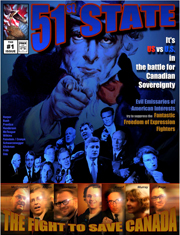Being on the Faculty of Graduate Studies and Research council my attention was drawn to the issue of what happens to theses. In my day you bound a bunch of copies and one went off to Libraries and Archives Canada where it was indexed, but could not be read online. Since 1997 it looks like they have been digitizing the theses working with contractors. Now they ask graduate students to sign a non-exclusive license that gives LAC remarkable rights. See the page for graduate students, What you should know – at the bottom is the link to the PDF of the license they have to sign which includes the following language:
[I] hereby grant a non-exclusive, for the full term of copyright protection, royalty free license to Library and Archives Canada:
(a) to reproduce, publish, archive, preserve, conserve, communicate to the public by telecommunication or on the Internet, loan, distribute and sell my thesis (the title of which is set forth above) worldwide, for commercial or non-commercial purposes, in microform, paper, electronic and/or any other formats;
(b) to authorize, sub-license, sub-contract or procure any of the acts mentioned in paragraph (a).
I find this language too broad. I can understand why Theses Canada wants these rights in order to be able to run a genuinely useful service that makes Canadian research accessible, but this license is just too broad, especially when enforced by universities that require all graduate students to sign it. There is provision on the Theses Canada site for graduates delaying submission (if they want to register patents, for example) and I’m guessing that most universities would respect a student’s wish to not sign the license.
There is a separate issue around copyright. Part of the License includes this:
If third-party copyrighted material was included in my thesis, I have obtained written copyright permission from the copyright owners to do the acts mentioned in paragraph (a) above for the full term of copyright protection.
I wonder if the accessibility of theses online and the terms of the License might change the willingness of other copyright owners to grant permissions to graduate students.
 Once I notice one comic being used to introduce computing issues I’m told of another. Google commissioned the Chrome comic, Gordon Duncan of
Once I notice one comic being used to introduce computing issues I’m told of another. Google commissioned the Chrome comic, Gordon Duncan of  The blog,
The blog, 
